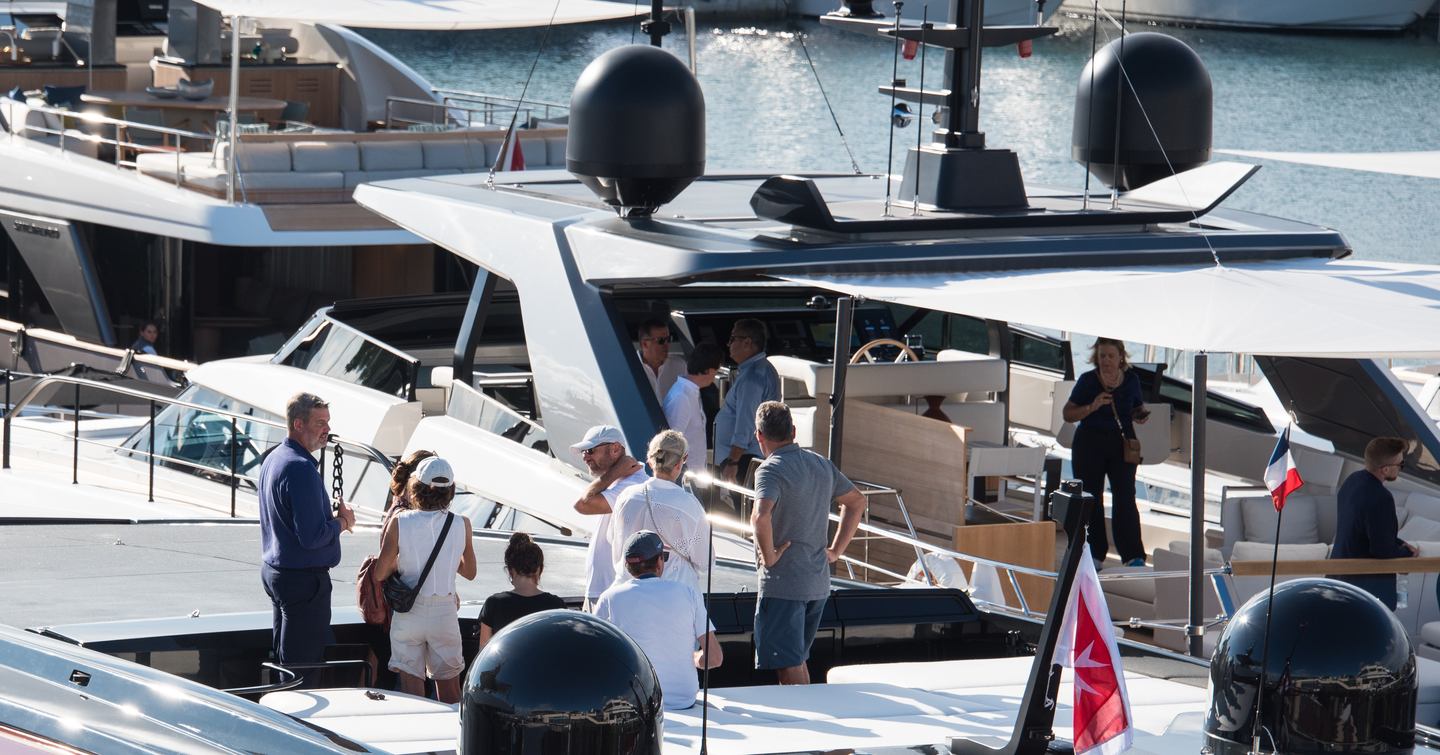Owning a superyacht, especially one of the world’s largest yachts, comes with challenges, including balancing the desire for a luxurious onboard lifestyle with the upkeep required for smooth operations. That’s where a yacht manager plays a vital role.
We take a look at the world of yacht management, exploring the role of the yacht manager and their responsibilities in safeguarding the well-being of the yacht, its owner, guests, and crew.
Yacht Management
A yacht management company serves as the cornerstone, enabling a team of yacht managers to foster relationships with yachts, owners, and captains. Leveraging the company's infrastructure, including financial, technical, legal, and safety aspects, the yacht manager has access to all the resources needed for the effective management of a yacht.
Financial Management
By employing dedicated bank accounts for individual yachts and adhering to an annual budget established in collaboration with the captain and yacht owner, the yacht management team takes charge of comprehensive financial oversight. This includes managing expenditures, categorizing expenses, processing payments, and reconciling bank statements and credit cards. The team ensures transparency through the production of regular reports, analyzing actual operating costs against the budget, and providing detailed explanations for any variances that may arise.

Technical Management
From planned maintenance to refits and repairs, yacht management companies provide access to experts in a diverse field of yacht requirements. The management team collaborates with captains, engineers, contractors, and shipyards to synchronize maintenance and repair efforts with budget constraints and the yacht's planned cruising itinerary.
In the technical domain, the team extends guidance and expertise on flag state, insurance, and classification matters.
Safety Management
Implementing a Safety Management System (SMS), customized for each vessel, and aligned with the specific operations and arrangements on board, is a fundamental service provided by a yacht management company.
Undertaking this responsibility a yacht management company should demonstrate proficiency in international codes and conventions governing safety, security, and maritime labor (ISM, ISPS & MLC), along with a deep understanding of the specific requirements mandated by each flag state.
The Yacht Manager
The yacht manager serves as the link between the yacht management team and the captain and yacht owner. Positioned at the forefront of operations, they navigate the delicate balance of involvement. A misstep could lead the captain to feel threatened and untrusted, while an understated approach may result in overlooking a vital piece in the intricate puzzle of yacht operations.
The yacht manager, utilizing the services of the management company as stated above, takes charge of negotiating the various service requirements: financial, technical, and safety.
They engage in discussions with the captain and yacht owner, addressing budgetary needs for the upcoming year or specific projects like refits.
In overseeing technical aspects, the yacht manager works with the engineering and deck team to manage repairs, seeks advice on technicians, arranges shipyard time, and handles insurance paperwork post-incidents like a lightning strike.

Additionally, the yacht manager ensures the implementation of safety checks in line with the safety management system (SMS), taking necessary corrective and preventative actions to avert incidents.
The role of the yacht manager is important in fostering relationships with the onboard crew. Amongst many tasks, they ensure contractual promises are fulfilled, monitor adherence to hours of rest, and serve as a confidential sounding board for early indications of discontent. This integral function helps contribute to a harmonious and productive working environment on the yacht. to the benefit of all.
Behind the Scenes
Though not physically onboard, the yacht manager maintains an intricate connection to the yacht and its daily operations, ensuring an awareness that rivals being present on site. Operating in the background, there's a trust in the crew to execute their roles, with the manager ready to assist, able to advise, and strategically exert influence when necessary.
Ideally, the captain views the manager as a peer, someone they can turn to for assistance at any time. The trust forged between a captain and a yacht manager is essential for effective yacht management.

Avoiding the Storm
In the world of yacht management, the adage "prevention is better than cure" stands as a guiding principle, ensuring smooth operations and safeguarding against potential incidents. A yacht manager's proactive approach to safety onboard will emphasize preventive measures, significantly reducing the likelihood of accidents onboard.
Effective yacht management operates on the belief that through meticulous planning, rigorous safety protocols, and continuous monitoring, incidents can be averted. The focus of a good yacht manager shifts from reacting to problems to anticipating and addressing potential issues before they escalate.

A key aspect of this preventive mindset is robust safety management. Yacht managers identify and analyze potential risks to implement measures that minimize the likelihood of incidents. This approach enhances the safety of everyone onboard and safeguards the vessel, its crew, and the owner's investment.
From insisting upon routine safety drills and checking maintenance schedules, the yacht manager can establish a safety-conscious culture throughout the yacht.
Team Building
Yachting is, and always will be, about people.
Successfully managing and maintaining a yacht hinges on trust and belief among everyone involved. It's about fostering connections, making meaningful contributions, and consistently asking, "How can we do this better?"
The relationships between the owner and captain, captain and crew, and throughout the yacht are the key to success. A yacht's smooth operation and the owners' enjoyment hinge on a positive atmosphere where all crew and guests feel respected and valued.

Yacht managers play a crucial role in providing support and expert guidance. Their aim is to empower captains and crew to excel while ensuring owners have an enjoyable experience. Within recruitment, they should always recognize that captains and crew are often best positioned to determine a 'good fit' among candidates, understanding the intricate dynamics onboard.
Yacht managers should pay attention to the well-being of the crew. This includes monitoring work hours, ensuring proper rest periods, and addressing any concerns or grievances.
Navigating Crises
In the unfortunate event of an incident or accident onboard, the role of a yacht manager becomes pivotal in managing the aftermath and ensuring a comprehensive response.
As the often first point of contact when an incident occurs, they must respond promptly, assess the situation, and initiate immediate actions to address any urgent concerns or emergencies. If a Designated Person Ashore (DPA) is engaged by the yacht, the manager and the DPA will work together closely.
Clear and timely communication should be a priority for the yacht manager, coordinating between the crew, the yacht owner, relevant authorities, and any necessary external parties.
Yacht managers may lead the initial investigation, collaborating with the captain and crew to gather incident details, document information, and understand the sequence of events.
They ensure regulatory compliance by aligning the response with maritime regulations and safety protocols and coordinating with flag state authorities and classification societies.
Prioritizing crew safety, yacht managers offer support to those affected by the incident, addressing immediate concerns and facilitating access to necessary assistance, including medical or counseling services.

In legal and insurance matters, yacht managers communicate with legal experts and insurance providers. They handle the legal and financial aspects of the incident, managing insurance claims, ensuring compliance with contracts, and seeking legal advice when needed.
Conducting a thorough analysis of the incident is essential, aiming to understand its root cause. The yacht manager will use this information to implement preventive measures, minimizing the likelihood of similar incidents in the future.






